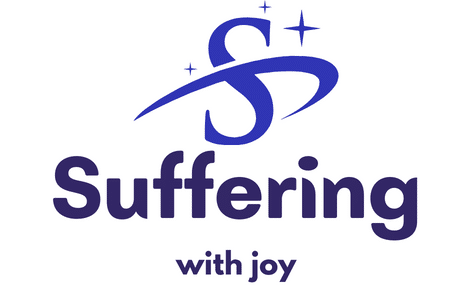The hustle and bustle of city life have long been associated with stress and mental health issues. Commonly, you may seek solace in the lap of nature to break free from the shackles of your mundane routine. If you thought that visiting parks or taking a short trip to the countryside was merely a mood booster, you’re in for a surprise. Forest bathing, also known as Shinrin Yoku in Japan, where it originated, has been scientifically proven to benefit your health. Largely underrated in the realm of therapy, this simple activity connects us with our primordial roots and serves as a powerful antidote to the pressures of urban living.
Understanding the Concept of Forest Bathing
To start with, let’s understand what forest bathing is all about. Unlike what the name suggests, it does not involve a swimsuit or a bathtub. Instead, it refers to the practice of spending qualitative time in the forest, engaging in activities like walking, sitting, observing, or simply breathing in the air. It’s not about exercising or hiking, but immersing yourself in the forest atmosphere, soaking in the essence of nature.
A lire aussi : How Can Pet-Assisted Therapy Improve Outcomes in Pediatric Oncology?
The term ‘Shinrin Yoku’ was coined in Japan in the 1980s and has been a cornerstone of preventive health care and healing in Japanese medicine ever since. The therapy advocates immersing oneself in the forest as a way to enhance overall well-being.
The Scholarly Evidence
The significance of forest bathing might be relatively unknown, but it is by no means unproven. Multiple studies conducted over the past few decades have offered substantial evidence to underscore its therapeutic benefits.
Cela peut vous intéresser : How Does the Incorporation of Probiotics in Hospital Meals Affect Patient Recovery?
A study published on PubMed, a renowned platform for scholarly articles, revealed that forest bathing helps reduce stress levels. The research involved subjects who spent time in a forest and had their salivary cortisol, blood pressure, pulse rate and heart rate variability measured. The results showed significant reductions, indicating that forest bathing has a relaxing effect on humans.
Another study, published on PMC, a free full-text archive of biomedical and life sciences journal articles, revealed a noteworthy link between forest bathing and improved mental health. The study showed that participants who engaged in forest bathing had lower levels of depression, anxiety, and anger.
How Forest Bathing Benefits Your Health
Forest bathing is a simple, accessible, yet highly effective way of enhancing your health. It offers a range of benefits, from reducing stress and improving mental health to even boosting your immunity.
Firstly, spending time among trees allows you to absorb phytoncides, organic compounds released by plants. These compounds have been found to increase the number and activity of a type of white blood cell that kills tumor- and virus-infected cells in our bodies.
Secondly, the calming effect of being in nature has been proven to lower cortisol levels, a hormone often used as a marker for stress. A lower cortisol level translates to lower stress and anxiety, thereby promoting mental wellbeing.
Moreover, forest bathing encourages mindfulness and contemplation, which is therapeutic and helps you reconnect with yourself. By focusing on the sounds, smells, and sights of the forest, you can achieve a state of calm and peace, thus reducing the risk of mental health issues.
Forest Bathing as a Preventive Medicine
The idea of forest bathing as a preventive medicine revolves around the notion that prevention is better than cure. The idea is to create a healthy lifestyle that can help preempt health issues even before they occur.
This principle is especially applicable in urban life, where the level of stress is high due to various factors like work pressure, traffic, noise, and pollution. Regularly practicing forest bathing can help you maintain a balanced state of mind, thereby reducing the chances of health problems related to stress and lifestyle.
In Japan, there are official forest therapy trails, recognized by the Forest Therapy Society, where you can bathe in the forest atmosphere to reap health benefits. With the mounting evidence of forest bathing’s effectiveness, it might be time to incorporate this therapeutic practice into our healthcare system.
Incorporating Forest Bathing into Your Lifestyle
The best part about forest bathing is that anyone can do it, and it doesn’t require any special equipment or training. All you need is a forest or a park with trees and some quiet time to spend there.
Try to locate a green space in or around your city where you can practice forest bathing. Once there, let your senses guide you. Listen to the birds chirping, the rustle of leaves, the flow of water in a creek. Touch the bark of a tree, the damp earth, the cool water. Smell the fresh air, the scent of green leaves and flowers.
Remember, forest bathing is not about covering a certain distance or burning a specific number of calories. It’s about letting nature enter your body through all your senses and giving your mind and body the healing they need.
Incorporating forest bathing into your lifestyle may require some adjustments in your routine or priorities, but the health benefits it offers make it a worthwhile endeavor.
The Implications of Forest Bathing for Urban Residents
While city dwellers may not always have immediate access to a sprawling forest, the practice of forest bathing can still be incorporated into urban lifestyles. Its therapeutic benefits can provide an effective antidote to the stresses of urban living.
Many metropolitan cities have designated green spaces or urban forests, which can serve as ideal spots for forest bathing. Even time spent in a local park can have beneficial effects. Those living in skyscrapers can utilize rooftop gardens, while others can make use of balcony gardens or indoor plants.
According to an article on Google Scholar, the physiological and psychological effects of forest bathing, even in urban environments, can be significant. The study indicated that even short-term visits to urban green spaces can relax the body and reduce depressive tendencies. This lends further credence to the potential of forest bathing as a preventive medicine in urban settings.
Apart from the physical health benefits, spending time in a forest environment also provides a chance to disconnect from digital devices and the fast-paced rhythm of city life. This digital detox, even for a short while, can refresh the mind and enhance one’s mental health.
With increasing urbanization, architects and city planners are now considering the inclusion of more green spaces in their designs. Recognizing the role of forest therapy in promoting human health, the concept of ‘urban forest bathing’ is gaining traction.
Conclusion: Embrace Forest Bathing for a Healthier Life
To sum up, forest bathing or Shinrin Yoku offers various health benefits, ranging from stress reduction to improved mental health and even enhanced immune function. The physiological and psychological effects of immersing oneself in a forest environment have been validated by multiple scientific studies, including those published on PubMed and PMC.
For urban residents, this natural therapy becomes even more critical. Amid the constant noise, hustle, and pollution, forest bathing serves as a breath of fresh air, a potent antidote to urban stressors. It’s a preventive medicine that not only enhances health but also improves the quality of life.
Embracing forest bathing doesn’t require relocating to the countryside or investing in expensive equipment. It simply necessitates the willingness to spend time amid nature, absorbing its beauty and tranquility through all your senses. Whether it’s a city park, a rooftop garden, or a quiet corner with indoor plants, choose your space and let the green healing begin.
Forest bathing represents a return to our roots, a chance to reconnect with nature in its purest form. As the world gets increasingly digital and urbanized, let’s not forget the ancient wisdom encapsulated in Shinrin Yoku – the forest is the best healer.











